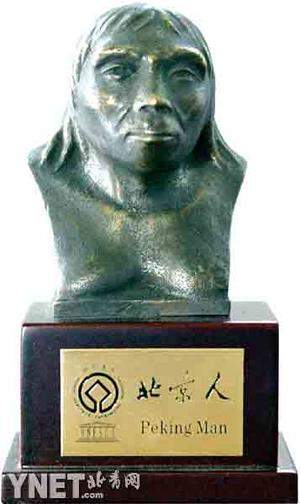Are Chinese descendants of an African Eve?
The history of modern humans starts with late Homo sapiens.
Dr. Xing Song from the Institute of Vertebrate Paleontology and Paleoanthropology, CAS, says we must first define what we mean by the origin of modern man. It is a completely different concept from the origin of mankind. The latter refers to when and where the ancient apes evolved into people; while the origin of modern man refers to when and where people who look like modern humans originated. The academic view is that modern humans, the latest phase in the history of human evolution, i.e. late Homo sapiens, appeared in the period from around 50,000 to 10,000 years ago.
Except for some particular characteristics, late Homo sapiens are basically the same as today's humans. Their fossils are widely distributed not only in Asia, Africa, and Europe but also in Australia and the Americas.
Remains of late Homo sapiens dating back to between 50,000 to 37,000 years ago have been found all over China. The finds include Hetao man in Erdos, Inner Mongolia; Liujiang Man, dating back 50,000 to 30,000 years, in Liujiang County, Guangxi; the Upper cave man, dating back 30,000 years, in Zhoukoudian, near Beijing; and Ziyang man dating back 10,000 years, in Ziyang City, Sichuan.
Professor Jin Li maintains that late Homo sapiens from all over the world, including China, had common ancestors, that is, migrating Africans, who arrived in China 60,000 years ago.
 |
|
The statue of Peking Man. |
China has been continuously settled by humans since the earliest times
But despite the seemingly conclusive genetic evidence, Professor Wu Xinzhi insists the debate between "single-region evolution" and "multi-region evolution," is not settled. He maintains that Africa is not the only origin of modern humans, but that modern man evolved separately in several parts of world. He believes there is ample evidence that at least some of the ancestors of modern Chinese were native to the area.
From the 1920s on, archaeologists discovered large numbers of ancient human fossils in China. According to Professor Wu, different populations of ancient humans lived in overlapping periods. Yuanmou Man in Yunnan Province dates back 1,700,000 years, Shaanxi Lantian Man 1,150,000 to 600,000 years, Peking Man 500,000 to 200,000 years, Shandong Yiyuan man 400,000 years, Anhui Hexian 300,000 to 200,000 years and Guangdong Maba Man 100,000 years.
|
Ancient human fossils found in China |
||
|
Homo erectus |
Yuanmou Man |
1,700,000 years ago, in Yuanmou County of Yunnan Province |
|
Lantian Man |
1,150,000 to 600,000 years ago, in Lantian County of Shaanxi Province |
|
|
No. 1 Nanjing Man |
600,000 years ago, Tangshan of Nanjing |
|
|
Peking Man |
500,000 to 200,000 years ago, Zhoukoudian of Beijing |
|
|
Yiyuan Man |
400,000 years ago, Yiyuan of Shandong Province |
|
|
Early Homo sapiens |
Dali Man |
230,000 to 180,000 years ago, Dali of Shaanxi Province |
|
Maba Man |
200,000 to 160,000 years ago, Maba of Guangdong Province |
|
|
Changyang Man |
195,000 years ago, Changyang of Hubei Province |
|
|
Late Homo sapiens |
Upper Cave Man |
30,000 years ago, Zhoukoudian of Beijing |
|
Liujiang Man |
50,000 to 30,000 years ago, Liujiang County of Guangxi Province |
|
The fossil record shows that in China there have always been different populations of ancient humans. Therefore, it remains possible that today's Chinese people are directly descended from them. But there is a major problem facing the proponents of the multi-regional thesis: in China fossils from different eras are rarely found in the same location. This implies the different populations were unrelated and casts doubt on the thesis of continuity of settlement.
Wu says this is because not all of the ancient human remains were fossilized and became available to later generations. Essentially he is saying there are haphazard gaps in the fossil record.
 0
0 







Go to Forum >>0 Comments